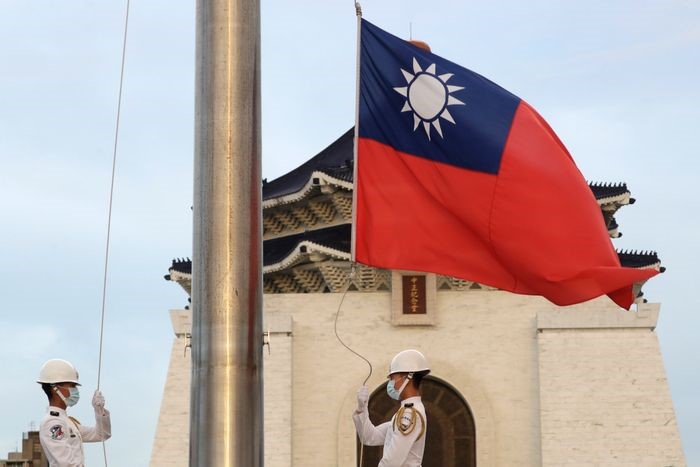Taiwan: a win for common sense
The results are in and, if we’re all honest, they weren’t a surprise. Taiwan voters have given an unprecedented third presidential term to the DPP but have changed the governance of the island back to the KMT. It’s not hard to be unprecedented when democracy on the island is so new, let’s not forget that 1996 was the first election the island ever held and prior to 1987 was still under Martial Law. So being a first is not hard
This election gave us several precedents. The first time there were three parties in the running, the first time any party has held the presidency beyond two terms and now is the first time the Legislative Yuan has had a minor party hold the balance of power.
Most people in Taiwan prefer the Status Quo, but there are two ways to look at what status quo means to Taiwan. In terms of where Taiwan sits in the One-China Policy, and how China is governed locally.
In the first description of status quo, the globally understood and preferred view, it means Taiwan retains its political independence, remains part of China but with a separate form of governance and there is enough ambiguity that everyone understands; it’s ok to differ on the understanding of how Taiwan is governed but those differences won’t make any changes to the situation.
In the second, it’s a little more complicated. Recently, and particularly as the US increases tensions and ratchets up its support for one party over the other, there’s been a different meaning of the concept of status quo even though the meaning of the phrase hasn’t change, the application of it is different.
It means, according to an online dictionary, “the existing state of affairs, especially regarding social or political issues”. Well, the existing state of affairs in terms of how Taiwan is governed is a state of confusion, the political ambiguity that once existed is now no longer what it once was. Joe Biden as recently as this week has said he does not support independence for Taiwan, but at the same time, he and his party have said they do support what Western media calls the “independence leaning” DPP. So, with a “Western leaning” new president Taiwan has what it has always had, confusion and political ambiguity, in other words, as a result of this election, nothing has changed; the status quo remains what it is in both of its applications, the continued governance of the island and the island’s status in relation to China.
There is no evidence that the DPP or the new leader, Lai will seek independence, there is no evidence that China will seek forced reunification either, only western media and politicians say these things but to say that the DPP and its new leader William Lai Ching-Te, will lean towards the USA is absolutely correct, one look at Lai’s X account will demonstrate that but, at no time has he been heard to say he seeks independence. To do so would not only incur the wrath of Beijing and about 1.3 billion Chinese people, it would incur the wrath of many of his own electorate, most of whom prefer the status quo. But not only will he not seek independence, he will be hard pushed to implement policies or strategies leading towards that goal as he doesn’t have the control to do it.
Americans will understand how the election worked but many Brits, Australians and other democratically ruled people might not. In this election, there were two votes cast, one for the president and the winner was the DPP, with Lai. The other was for the parliament, and the KMT won most seats but do not hold the majority.
The Taiwanese parliament, which is called the Legislative Yuan, was not won by the same party. Two seats were won by independents, eight were won by the new Taiwan People’s Party (TPP) and 52 were won by the KMT. That’s 62 seats of a total 113. So, the newly elected president does not have overall control. But neither do the main opposition party, to do that would need 57 seats.
Not only does Lai not have overall control, despite his election win it’s a win that no one could proudly claim provides a mandate for anything – the best representation I’ve seen is from S.L. Kanthan, who very helpfully provided a graphic on X which clearly showed how the presidential votes were dispersed. Lai has won less than one third of the total votes, in terms of who governs the island the graph would show a much closer picture with 46% going to the KMT and 45% to Lai’s DPP with 7% going to the new party, the TPP.
What Taiwan now needs is cooperation because what’s happened in Taiwan is the equivalent of Joe Biden a Democrat winning the presidency but the Republicans controlling the House.
In the UK the controlling party in the House of Commons (parliament) chooses their leader, usually it’s the leader who takes them to the election and when they win that person becomes the Prime Minister, in the UK now, this is not the case, Boris Johnson took the Conservative Party to the election and won, then after resigning, the Party, not the country, elected his replacement.
It’s not sour grapes to say that the DPP won the Taiwan presidential election due to a dilution of the vote it’s a political fact. It’s also not fair to say that independence or reunification were the main factors of the election they were not. Most of the people who live on the island do not seek reunification nor do they seek independence, they seek resolutions of their day-to-day issues. Like most people in the world, they want better housing, better education, better health outcomes and better lifestyles.
In the Mid-term, local elections of 2022, where those core issues really matter most, the KMT swept the board. In this election, the KMT once won the most seats with the TPP, led by the former KMT Mayor of Taipei, Koh Wen-je. There will be people who feel his inclusion in the election cost the KMT a significant victory but the bottom line is, he was in and won a creditable 8 seats, creditable because at the last elections the Party didn’t exist and in this election polled almost 27% of the votes, while the winner only collected 39%. He founded the Party in 2019 and appears to be not only a good regional leader but one who is not tainted by either an autocratic past, such as the KMT or a reliance and dependence on the US as the DPP has. He may therefore prove to be a good person to hold the balance of power in a Legislative Yuan divided by 30-year-old party lines.
This election was never going to be about independence, nor was there ever likely to be a move towards reunification, the real issue was, if the election would bring about a change in the status quo – in terms of the practicalities and the concept; it didn’t. The result therefore, wasn’t really a win for the DPP, it wasn’t really a loss for the KMT, it seems more likely to be a win for more stability in the region.


